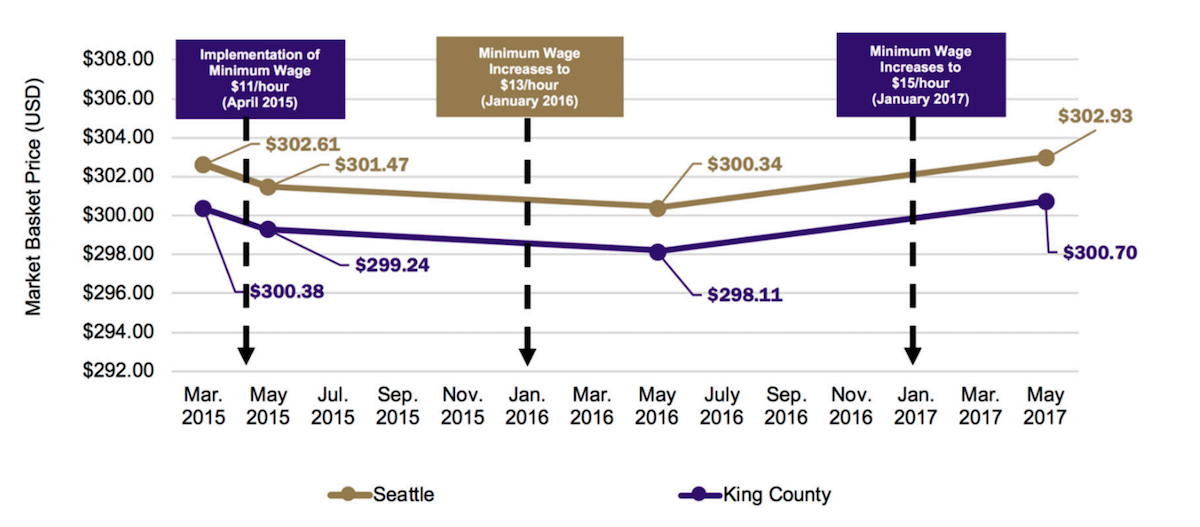The United States’ federal minimum wage has failed to keep pace with inflation since 1968, and therefore lower-income populations spend increasingly higher percentages of their paychecks on food. One challenge for low-income individuals seeking a higher quality diet is the cost of healthy foods. If wages increase but food prices remain unchanged, it is possible that low-income individuals would have the means to afford healthier foods. Recently, James Buszkiewicz and colleagues analyzed that premise in Seattle, a city that has been slowly raising its minimum wage and where employers with great than 500 employees were required to raise hourly wages to $15 by 2017.
Buszkiewicz and his team identified six supermarket chains located in Seattle (where wages were going up) and locations outside Seattle, in King County, where there was no requirement to increase wages. For two years, the researchers purchased the same groceries in supermarkets of low-income neighborhoods in both Seattle and King County.

The graph above shows how the cost changed throughout the two years in the two locations. Although food prices were consistently more expensive in Seattle than King County, the change over time was consistent. This means that the increased minimum wage had no effect on the overall cost of the groceries purchased by the researchers. In other words, if the increased minimum wage had had an effect on food prices, the price difference between the locations would have grown over time as Seattle prices increased and those in King County would have remained flat.
The United States’ federal minimum wage has failed to keep pace with inflation since 1968, and therefore lower-income populations spend increasingly higher percentages of their paychecks on food.
“We see incentive (e.g. Fresh Bucks) and taxation (Seattle Sweetened Beverage Tax) programs as means to curb unhealthy consumption and make healthy choices easier,” says Buszkiewicz. “Given the findings of Jardim (2018) and our finding of null effects on effects on grocery prices, higher earnings could result in low-wage earning families having more money to spend on fresh produce or other healthy items that we know are linked to better diet-related health outcomes.”
While there was good news that raising the minimum wages did not hurt supermarket prices in this case, the researchers caution that large supermarket chains’ prices are more likely to be affected by national economic trends, which is important in light of the ongoing push to increase the federal minimum wage.
Figure via “The Impact of a City-Level Minimum Wage Policy on Supermarket Food Prices by Food Quality Metrics: A Two-Year Follow Up Study,” International Journal of Environmental Research and Public Health. 2019;16(1).
Photo by Fancycrave on Unsplash














